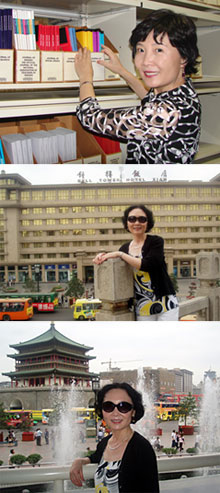 How long have you worked at Collins?
How long have you worked at Collins?
I started work in January 2004, so I’ve been working at Puget Sound for six years and 8 months.
Tell us a little about your education and background?
In 1982 I graduated from XinJiang University, China, with a BS degree in Chemistry. In 1993, I graduated from ZheJiang University, China, with a BS degree In Information Science. Before I came to the U.S., I worked in the English periodicals department at the XinJing University Library, and as a library assistant. In 1994 I came to the U.S. as an exchange visiting scholar at the University of Washington library school. I then worked two years for the King County Library, and a year at World Vision headquarters. I am a certified Medical and Social Services Chinese mandarin interpreter in WA state and a licensed Real Estate agent in WA state.
Describe your job at Collins?
I’m responsible for all aspects of print, microform and electronic journal acquisitions and control, as well as managing, troubleshooting and maintaining library periodicals holdings, journal usage statistics, and e-journal access. I oversee the repair on all library damaged materials and process binding of library materials and student theses. I also supervise students workers and provide assistance to the management team and librarians when needed. I am also a member of the Social committee and currently working on Race & Pedagogy conference Planning.
What do you like most?
Cooking, traveling and watching TV.
What would surprise someone about your job?
We provide over 800 print version journal subscriptions from over 24 countries, and 41,686 titles through electronic access from over 100 full text databases and publishers.
What do you like most about your work?
I like to work independently, but I also I like the people around at work!
Are libraries in China and the US different? How so?
Not anymore. It was a lot different 16 years ago when I was working in China. We did not have computers, and library science was not popular in China. At that time we had over 100 staff, but only two had library science degrees.
